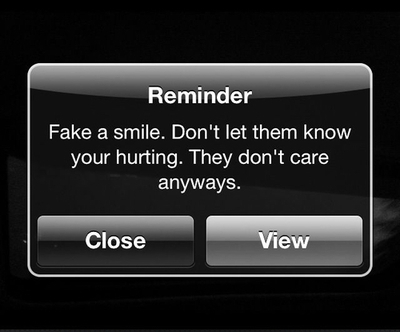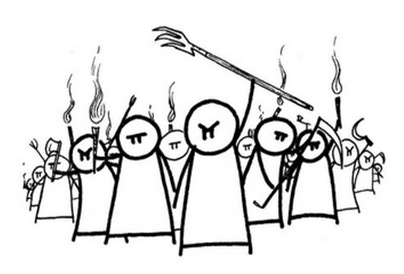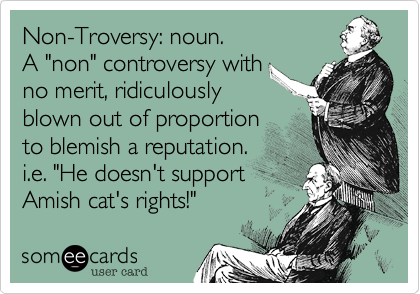
There are no words, really, though I’ll type a thousand as therapy.
I’ve been staring at that picture of the tree above, with its old, bulky roots, for a few days, as the violence that has once again rocked America has once again led to a chorus of outcry for change. Perhaps what we need is a change in mindset to remember our roots as human beings.
As President John F. Kennedy once said, “For, in the final analysis, our most basic common link is that we all inhabit this small planet. We all breathe the same air. We all cherish our children’s future. And we are all mortal.”
That mortal part, we do not seem to value it enough.
One of these days, we’re going to wake up, I think.
One of these days, we’re going to realize we’re killing each other over senseless anger, I think.
One of these days, a friend will call and simply ask how it’s going, I think.
One of these days, the headlines won’t be filled with both the tragic and the trivial, I think.
I think I might be wrong.
One of these days, we’re going to reap it.
One of these days, someone with their finger on a very important button will go too far.
One of these days, we’ll just stop responding to texts and calls.
One of these days, we’ll just give up.
I hope I am wrong.
Yes, Black Lives Matter. And white lives matter. Asian lives matter. Christian lives matter. Muslim lives matter. Young lives matter. Old lives matter. American lives matter. Russian lives matter. Iraqi lives matter. Women’s lives matter. Men’s lives matter.
Our short-sighted solution to respond to an event by pulling into tighter, highly defined groups of ethnicity, race, gender or religion isn’t working. We’re dividing ourselves further and playing into the devil’s hand of hate.
In 1963, most of the world watched in astonishment as President Kennedy was assassinated in Dallas. Last night, nearly 53 years later, mere blocks from Dealey Plaza where Kennedy was assassinated, five Dallas police officers were assassinated by snipers, on the heels of two men shot to death by police in Minnesota and Louisiana.
We’re regressing, America.
We can argue about guns and who can have them, or if it makes sense to allow military grade weapons available to civilians all day long. We can get snarky about deleted e-mails or business ethics of presidential candidates for months. But that’s not the division that ails us.
Simply put: how do we legislate kindness, compassion – or the simple ability to leave each other alone?
On Monday, the United States celebrated its 240th birthday. As majestic fireworks filled the sky, I doubt I was alone in pondering the sheer awe of time that had passed since those responsible for declaring our independence had put ink to their cause.
I also wondered how long we have left, how much has changed since the late 1700s in the world and how one of the greatest things about being American is not only freedom, but feeling relatively safe in our everyday lives.
We are no longer safe. And if we are no longer safe, we are no longer free.
When guns are fired from downtown skyscraper parking garages (Dallas) or from interstate overpasses (Washington, D.C. many years ago), when people are shot in their cars reaching for their wallets (Louisiana) you start questioning your safety nearly all the time.
All this does is serve to separate us more. We pull back into our homes, our neighborhoods and stay out of the cities and protests. Freedom to assemble shouldn’t have to come from the fear of being shot.
The song remains the same. We’re dividing ourselves.
Technology and social media have put a wedge in our society. We might be perhaps more disconnected that we were hundreds of years ago, when there were far fewer of us and our homes were miles apart.
We all have a voice and opinion and want to be heard.
The problem is, no one is saying anything worth hearing.
We market ourselves in blur of posts and pictures. If the intent was to be connected with people we don’t see as much anymore, maybe that was an itch we didn’t need to scratch if this is all we plan to do with it. If we wanted to see and talk to all those old friends and family more, would distance matter? We could still pick up a phone and catch up.
We’re a nation of creepers on social media, as if a picture of smiles and 140 characters of text tell the whole story. No one is perfect. But we pretend to be, and we’d prefer to take swipes at other people – their errors and mistakes – by calling them out on social media.
We’re jealous and envious of those with seemingly more than us.
It’s either that or the common obsession we have to know who Taylor Swift is dating now. And as much as I think we’re all a little too interested in celebrity boyfriends and girlfriends gossip, it’s probably the former.
We’re on social media to stalk people we used to like or be close to, but aren’t anymore and this is our totally American way of snooping in from time to time on their life.
So many angry people in the world, yet they all look happy in the photos.
What does this have to do with the most recent tragedies in Dallas, Louisiana and Minnesota? The same as it did for Columbine, Sandy Hook, Aurora, Fresno and more.
Simply put, we just don’t treat each other very well and we’re hiding behind two things: a lack of self-esteem and insecurity.
I usually try to come up with a positive message at the end here, to tie it all together, to provide a spark of hope in an otherwise dark moment.
All I can come up with this time is that we can only take care of ourselves. Preaching, lecturing isn’t working. To be the change you want to see in the world, I suppose it’s the Nike tagline.
Just do it.
If we raise our children right, hug our spouse, wave to the neighbors, keep our commitments and just try our best to not stab each other in the back, shutdown the apps a little more, we’ll hopefully lay down an example to the next generation.
It would be nice if we were happy in the life we have, not the life we want others to perceive we have.
Worried about what to do yourself? Want your voice to matter in the world? At a loss of how to raise your children to avoid this in the future?
Start there.
Love yourself, your family and your life. Be proud of who you are and kind to those who aren’t like you. The young ones are watching.
And maybe, one of these days, they will have a chance to save us.
One of these days, I hope I am right.


 We kind of enjoy putting on the show. For each other, for ourselves.
We kind of enjoy putting on the show. For each other, for ourselves.





